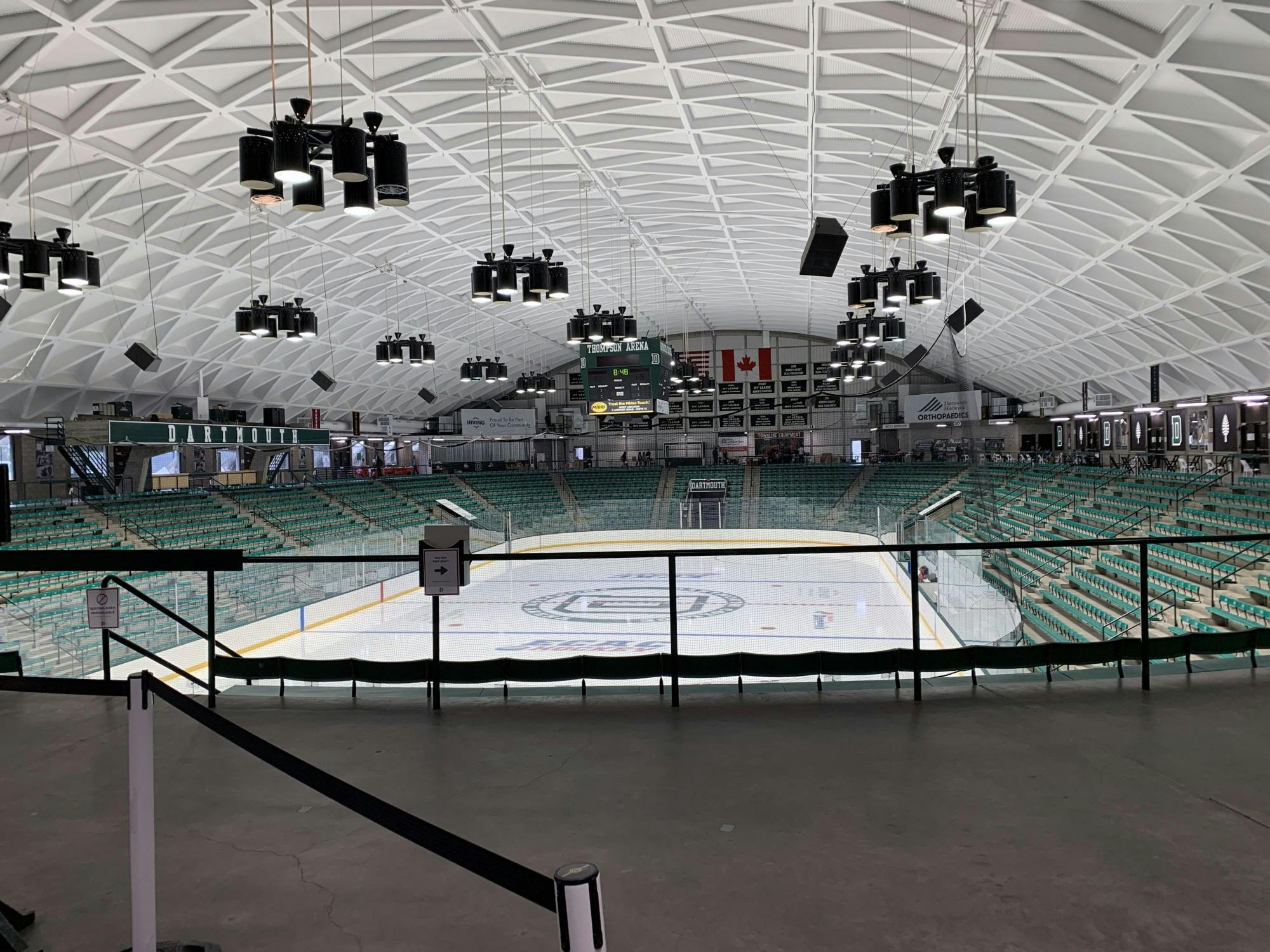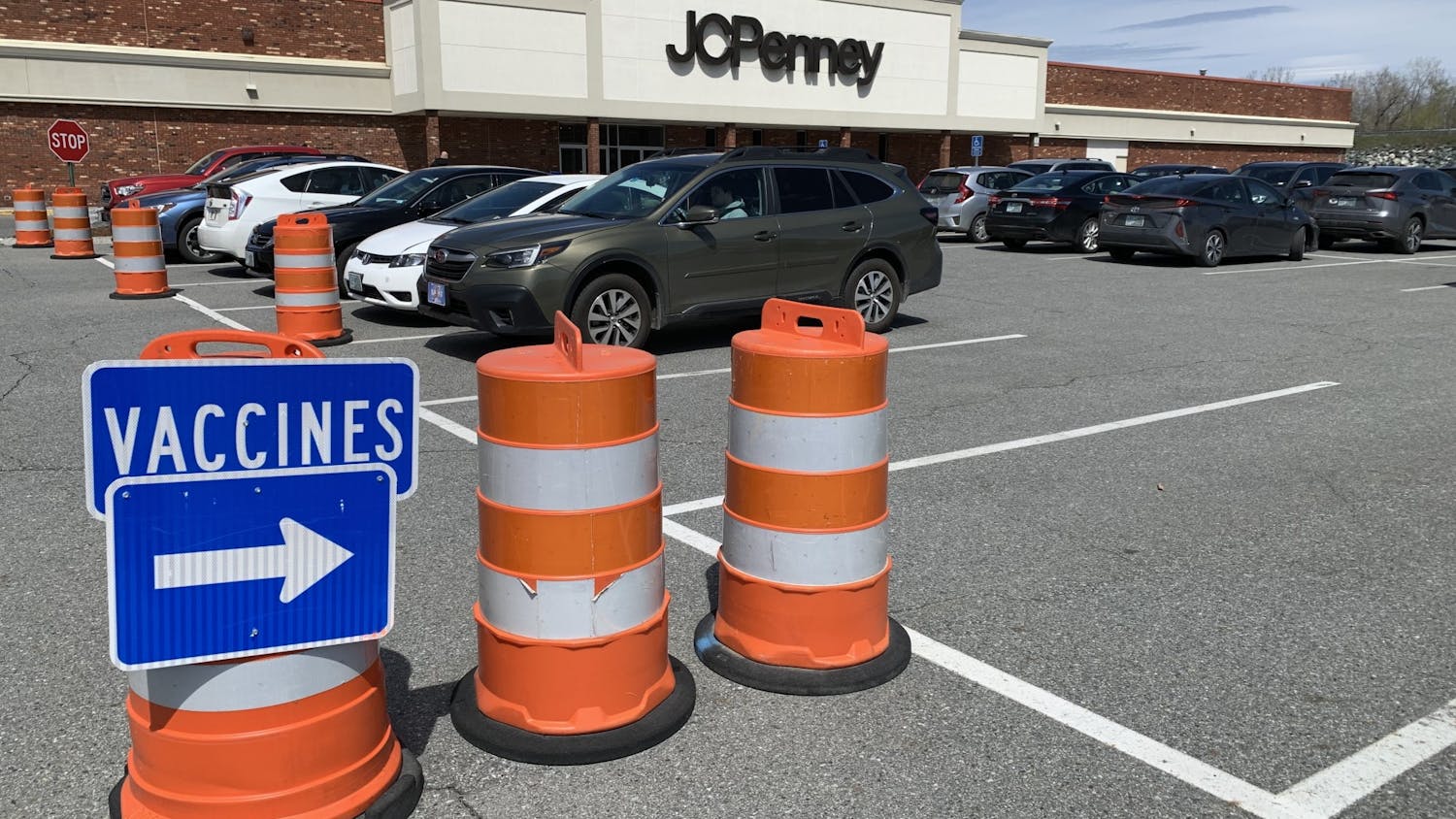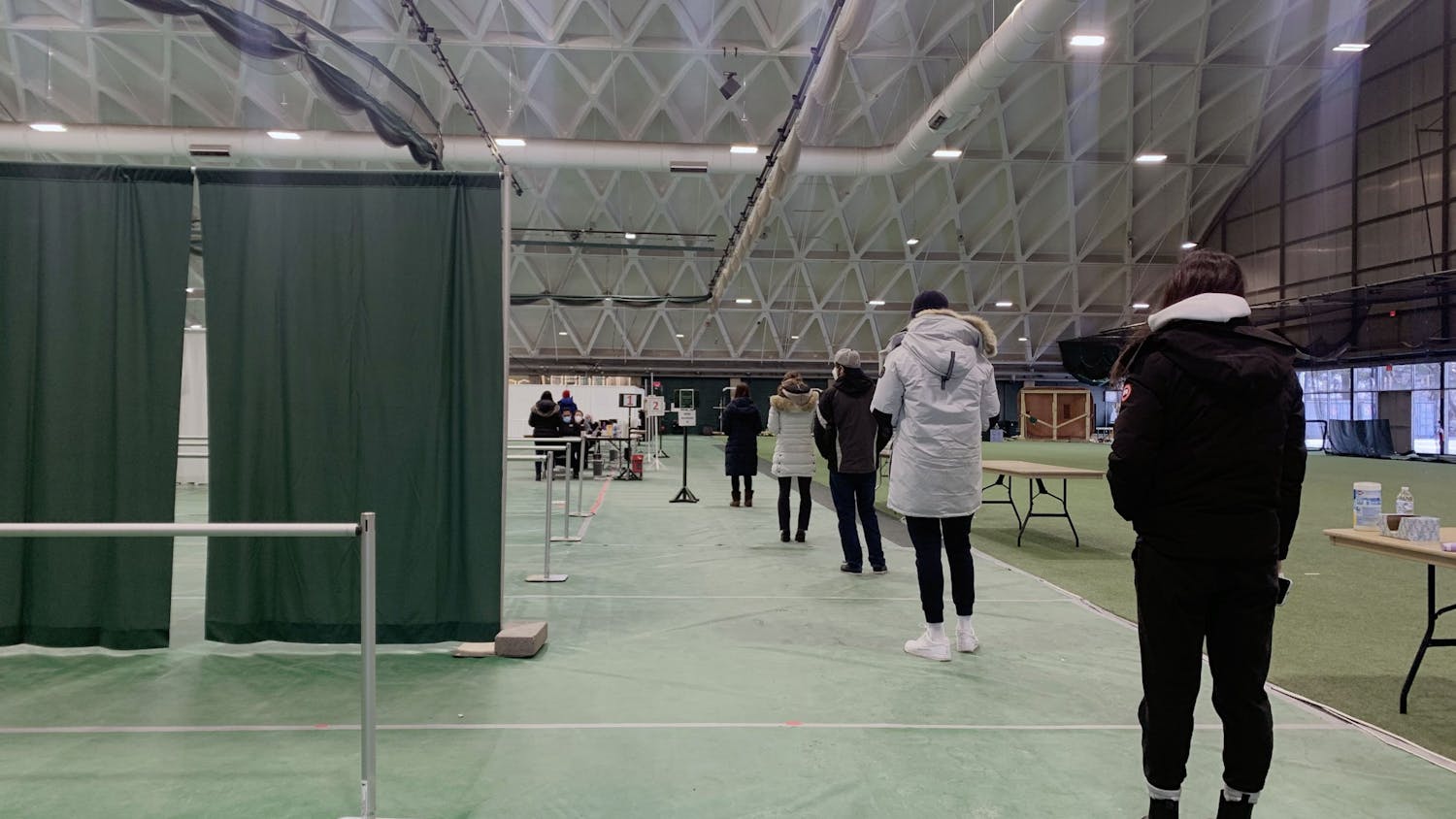On May 5 and 6, Dartmouth’s on-campus COVID-19 vaccination clinic at Thompson Arena saw “approximately” 570 total vaccine shots — about 350 on the first day and 220 on the second — administered to students, staff, faculty and community members, according to College spokesperson Diana Lawrence.
On the first day, four individuals experienced anxiety symptoms after receiving the Johnson & Johnson vaccine, causing the College to cancel the remainder of the appointments for the day and switch to a different supply of J&J vaccines “out of an abundance of caution,” Lawrence wrote in an email statement Thursday.
COVID-19 task force co-chair Lisa Adams said that the anxiety responses — specifically vasovagal, or fainting, responses — are a “neurologically triggered” response that causes the body’s blood vessels to dilate and blood pressure to drop. People may faint or experience other anxiety symptoms at the sight of blood or needles, which Adams said was likely the case for the four individuals, at least one of whom fainted as a result of the administration of the vaccine.
Lawrence wrote that anxiety symptoms — such as fainting — are “seen more frequently” after the Johnson & Johnson vaccine, “very possibly because people with a needle aversion choose the single-dose option.” She cited an April 30 Centers for Disease Control and Prevention study that found “anxiety-related adverse events” may be more common following the administration of the Johnson & Johnson vaccine, in part because people with needle aversion may be more likely to select the single-dose vaccine over the two-dose Pfizer and Moderna vaccines.
Lawrence wrote that the individuals received on-site medical attention and “appeared to have recovered.”
Adams said that the clinic rescheduled vaccinations to May 6 for the 21 people whose appointments were canceled, adding that the people whose vaccination appointments were rescheduled were able to choose between the Pfizer and Johnson & Johnson vaccines.
“Out of an abundance of caution, we paused the vaccine … and have switched to a different lot for all Johnson & Johnson/Janssen vaccines scheduled for [May 6],” Lawrence wrote.
On both days, the Pfizer vaccine was offered from 8 a.m. to 5:30 p.m., followed by the Johnson & Johnson vaccine from 5:35 p.m. to 7:30 p.m., according to Adams. According to Lawrence, 285 Pfizer vaccines and 65 J&J vaccines were administered on Wednesday, and 140 Pfizer vaccines and 80 J&J vaccines were administered on Thursday.
The second day proceeded without any additional incidents, Adams said.
Executive director of Dartmouth Emergency Medical Services Kelly Rutherford ’23 said that Dartmouth EMS helped Axiom Medical, a medical consulting firm employed by the College, as “observers,” noting that the group also observed the second-dose vaccine clinic held on campus last week that was open to faculty and staff.
Rutherford said that members of Dartmouth EMS were present at the clinic to observe recipients in the 15-minute window after receiving their shot, in order to treat anyone experiencing serious side effects. According to Rutherford, the morning of the May 5 clinic was “pretty quiet.”
Ethan Sipe ’24 signed up for the first dose of the Pfizer vaccine shortly after the College sent an email to students on April 23 announcing the on-campus vaccination clinics. He said he waited to get vaccinated on-campus by the College because he was worried he would be turned away by state-run clinics. He added that although he was happy to receive his vaccine on campus, he expected the College to offer vaccines to students earlier.
“I thought [it] was going to happen a lot earlier because Dartmouth, I think, likes to protect their students and gives us the best chance of having fun on campus,” Sipe said. “So this is a step in the right direction.”
Wells Willett ’24 said that he previously tried to receive his first dose at the state-run vaccination site at the former J.C. Penny in West Lebanon, but was turned away by the staff at the site. He said he was “super grateful” to receive the first dose of the Pfizer vaccine on campus, adding that the staff seemed to be “handling their roles” well and that the vaccination process was “super smooth.”
“I expect [the vaccine] to hurt in maybe a few hours,” he said just after receiving his dose. “But in terms of the actual vaccination, it felt pretty standard; it wasn’t anything extraordinary.”
Will Bryant ’24, who is living off campus in Vermont, said he originally signed up to receive a vaccine through the state of Vermont. However, when he found out about the on-campus vaccination clinic, he canceled his previous appointment because the Thompson Arena location was closer to his residence.
“I think that it’s definitely a strong show of confidence from the College to encourage students to get a vaccine,” Bryant said. “The fact that they’re offering them is a real net positive.”
Adams wrote in an email statement that the College had been in talks with the state of New Hampshire about distributing vaccines to Dartmouth community members “not only prior to the change regarding the residency rules, but prior to the COVID-19 pandemic.”
Adams wrote that the College decided to hold the on-campus vaccination site at Thompson Arena because when the site was used for COVID-19 testing, it demonstrated features like good ventilation and traffic flow.
For individuals who received their first dose from the on-campus clinics, a second dose clinic will be offered at Thompson on May 27, according to an email sent to recipients.
Daniel Modesto ’24 is the News executive editor. He is from Brooklyn, New York, and is a Native American and Indigenous Studies major modified with Latin American, Latino and Caribbean Studies.




